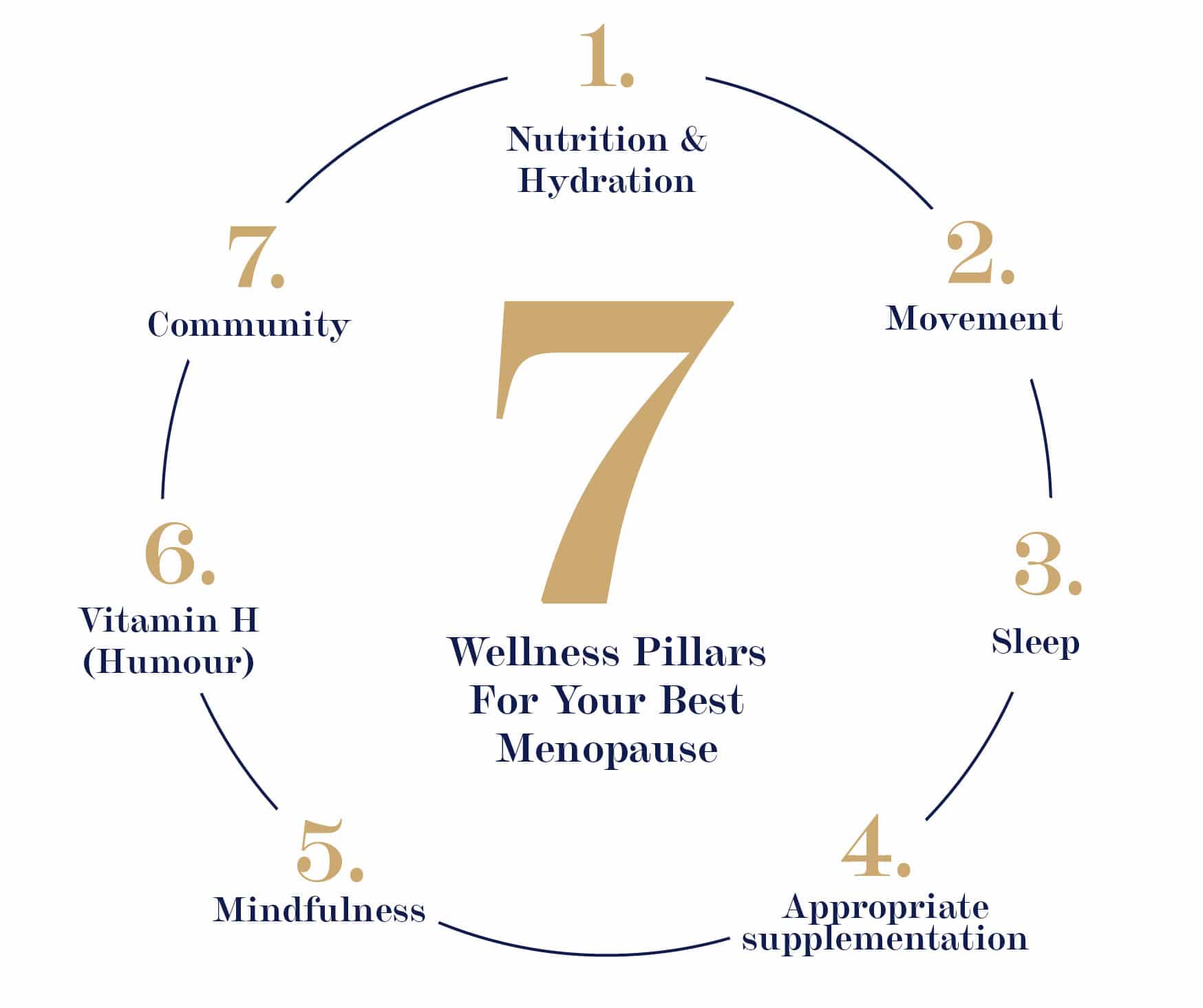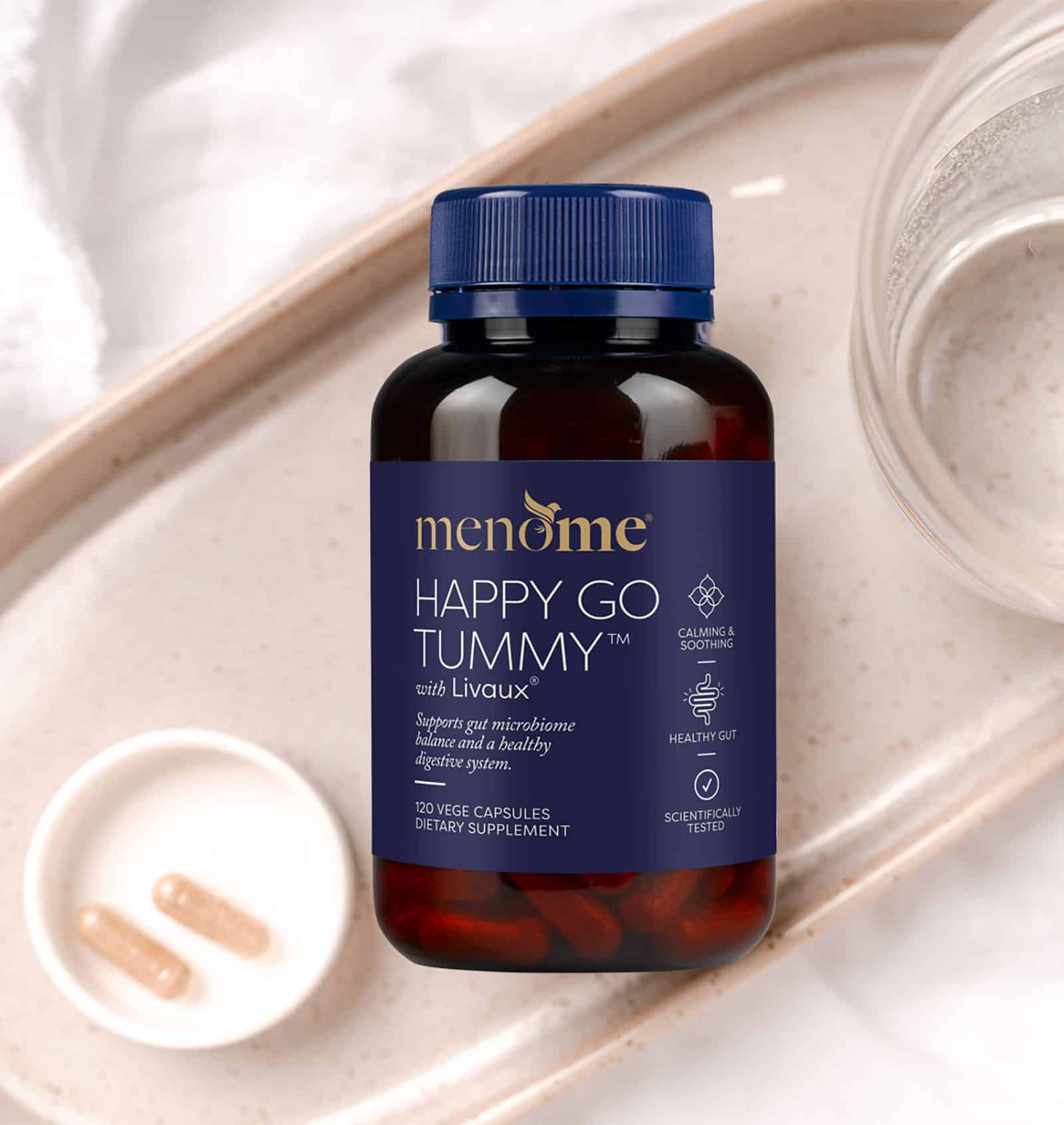A shifting body shape and – more often than not – a few extra kilos? Oh, joy. 😏
We get it. You’re not alone, and we’ve been there too.
But here’s something surprising: there’s little direct evidence that menopause itself causes weight gain. (Yep, you read that right.) Instead, it’s often a mix of hormonal shifts, lower activity levels, and a naturally slowing metabolism. As estrogen drops, fat tends to redistribute from the hips and thighs to the middle – cue the midlife muffin top.
But it’s not just about the number on the scale.
Many women also experience a shake-up in self-identity, a dip in confidence, and struggles with body image and self-esteem. Oh, and let’s not forget that crushing fatigue. Sound familiar? Yeah, us too.
Stack it all together, and it’s no wonder menopause can feel like a mental and emotional cocktail of challenges. And that knock to confidence? It doesn’t always get the recognition it deserves.
But here’s the good news – it’s starting to.
Which is especially helpful when it’s time to pull on shorts or a swimsuit.
Common Emotional Symptoms In Menopause
- Drained and low on energy
- Not quite like yourself – as if your femininity is fading
- Deflated when you catch your reflection
- A little lost, like a piece of you is missing
- Less confident in your sensuality
- As if your body’s changing without your permission
If any of this resonates, know this: you’re not alone, and it’s time to offer yourself a little grace. This is where self-compassion and self-care really come into play.
And no – we’re not about to dish out a “just love yourself” pep talk. You are beautiful, of course. But when you’re not feeling great, that can be the last thing you want to hear.
What Causes Low Self-Esteem During Menopause?
Even though it feels emotional, dips in self-esteem and confidence during menopause can have a strong physical root.
Much of the change starts in the brain, where estrogen plays a critical role in maintaining emotional balance.
“Hot flashes, anxiety, depression, night sweats – those symptoms don’t start in the ovaries, they start in the brain,” says neuroscientist Dr Lisa Misconi. “Those are neurological symptoms we’re just not used to thinking about them as such.”
Dr Misconi PhD is the director of the Women’s Brain Initiative at Weill Cornell Medical College in New York. Her research shows that women’s brains are sensitive to hormonal and chronological ageing, which helps explain why menopause can feel so disorienting, not just physically but emotionally1.
A Surprising Study on Body Image
Did you know?
A study published in Women & Health found that body image dissatisfaction is more common during perimenopause than after. In fact, post-menopausal women were less likely to be bothered by it.²
Translation: it does get better.
Related: How Menopause Affects Your Brain
5 Powerful Ways To Boost Body Image, Confidence & Self-Esteem During Menopause
1. Revamp Your Fridge And Pantry
A menopause-friendly diet supports both physical and emotional wellbeing. What you eat affects your mood, energy, and even your outlook.
Try this:
- Drink more water
- Remove added sugars
- Avoid refined flours
- Eat more leafy greens
- Choose (healthy) fats
- Prioritise foods rich in B vitamins
- Get enough omega-3’s
- Add phytoestrogens (get our FREE phytoestrogen list here)
- Skip the alcohol – it’s a major mood depressant
👉 Want more? Read our in-depth guide here.
2. Move Your Body – Even A Little
Studies show that regular movement boosts body confidence, increases feel-good endorphins, and helps manage weight gain during menopause.³
It doesn’t have to be a gym workout – a walk around the block or dancing in your lounge counts.
If motivation feels tough (thanks, fatigue), start with just five minutes. The key is consistency, not perfection.
👉 Related: Menopause & Why You Need To Exercise
3. Manage Your Mindset
Menopause can crank up the inner critic and increase rumination.
Try journaling things you appreciate about yourself – or jot down small wins:
“Today I made it to the end of the street.”
“Today I didn’t skip lunch.”
“Today I looked in the mirror and smiled.”
Training your brain to notice positives can slowly rebuild confidence.
👉 Related: Mindfulness Aids Menopausal Signs
4. Feed Your Soul
Menopause can make you want to retreat – but connection, creativity, and even a little spirituality can lift you up.
Don’t underestimate the power of:
Catching up with a friend
Trying a breathwork or yoga class
Spending time in nature
Listening to music you love
We’re always talking about breathwork for a reason – the benefits are real and far-reaching.
Try this exercise:
👉Related: Menopause Remedies You Can Do At Home – 5 Of Our Favourites
5. Don’t Suffer In Silence
It can feel vulnerable to admit you’re struggling – but sharing your story with others who get it can be incredibly healing.
Connecting with other women going through similar challenges can boost your confidence and sense of belonging.
💙 Join our private Facebook group here: [40+ Club For Ageless Goddesses]
Final Thoughts
If you’re struggling, menopause can feel like a minefield. But remember: it’s a phase of life, not an illness.
We often say that it takes a multi-factorial approach to create your best pre-, peri-, meno-, and post-menopause experience.
💙 Learn more about our 7 Wellness Pillars For Your Best Menopause

Supplement Support
Many women find Merry Peri® and Perky Post® helps to give them a sense of calm. You can buy them here.

A healthy gut has been linked to mood – enter Happy Go Tummy® Click here to buy.

🧠 References
Mosconi, Lisa. The XX Brain: The Groundbreaking Science Empowering Women to Maximize Cognitive Health and Prevent Alzheimer’s Disease.
Ruble, D.N. et al. Body image dissatisfaction across the lifespan: A study of women during perimenopause. Women & Health, 2020.
Tiggemann, M. & Williamson, S. (2000). The Effect of Exercise on Body Satisfaction and Self-Esteem as a Function of Gender and Age. Sex Roles, 43, 119–127.
Disclaimer: Our articles are a guideline only and should not take the place of medical advice. Any signs and symptoms you are experiencing could be due to a number of reasons. If you’re experiencing ongoing signs please see your health professional.
And just so you know: this article is written by a real person who has studied the physiology of menopause and women’s healthy ageing. While we may use AI as an assistant, the research, insights and heart behind every piece comes from us.
Main image by Engin Akyurt @ Pixabay
menopause mental health, body image in menopause, confidence during menopause, emotional symptoms of menopause









